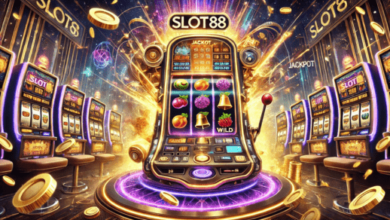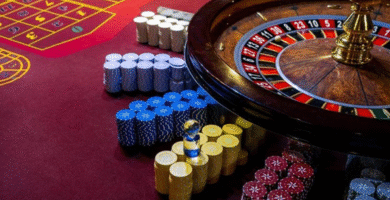The Impact of Games on Behavior: A Deep Dive

Video games have grown from a niche pastime to a global phenomenon, influencing millions of lives daily. Whether it’s a child discovering their favorite adventure game or an adult unwinding after work with a multiplayer session, gaming plays a significant role in shaping behavior. This blog explores how games affect behavior, both positively and negatively, and provides insights into understanding this powerful medium.
Cognitive Development
Video games can enhance problem-solving skills, hand-eye coordination, and spatial reasoning. Strategy games and puzzles, in particular, challenge players to think critically and adapt to new scenarios. By engaging with these games, players develop mental flexibility and analytical thinking, which can have real-world applications in academic and professional contexts.
Social Interaction
Multiplayer and cooperative games foster teamwork and communication skills, creating opportunities for collaboration. Social gaming platforms also build communities, helping players connect with like-minded individuals worldwide. These interactions can lead to lasting friendships and the development of social skills that extend beyond the virtual world.
Emotional Regulation
Games often act as a stress-relief outlet, offering an escape from daily challenges. Players can experience a sense of achievement and satisfaction from overcoming in-game obstacles. This emotional engagement can improve mood and provide a healthy way to cope with stress, making games a valuable tool for mental health management.
Behavioral Risks
Despite their benefits, excessive gaming can lead to addiction, negatively impacting real-world responsibilities. Additionally, exposure to violent content in some games may desensitize players to aggression, potentially influencing their behavior in adverse ways. Awareness of these risks is crucial for maintaining a balanced approach to gaming.
Slot Mechanics and Behavioral Effects
One fascinating aspect of gaming behavior lies in its relationship to slot machine mechanics. Many modern games incorporate slot-like systems to engage players, such as loot boxes and gacha systems. Loot boxes offer randomized rewards in exchange for in-game currency or real money, while gacha systems, popular in mobile games, involve “pulling” for characters or items with uncertain outcomes. These mechanics mimic gambling behavior by leveraging intermittent rewards, creating excitement but also raising concerns about compulsive spending.
Positive Aspects of Slot Mechanics
Randomized rewards keep players intrigued and motivated to continue playing, enhancing engagement. Additionally, players often calculate probabilities and develop strategies to maximize their rewards, fostering strategic thinking and planning skills.
Negative Aspects of Slot Mechanics
The unpredictability of rewards can create compulsive habits, leading to addictive tendencies. Microtransactions associated with Slot mechanics may also cause financial strain, particularly for players who struggle to set spending limits.
Tips for Balanced Gaming Behavior
To harness the benefits of gaming while mitigating risks, it is important to adopt healthy habits. Setting time limits ensures a healthy balance with other activities, while choosing games that promote creativity, teamwork, or learning can enhance the gaming experience. Understanding game design, particularly mechanics like loot boxes, helps players set a budget and avoid overspending. Finally, staying mindful of emotional reactions to games ensures that gaming remains a positive and enjoyable activity.
The Future of Gaming and Behavior
As gaming technology advances, so will its impact on behavior. The integration of AI, virtual reality (VR), and augmented reality (AR) opens new avenues for immersive experiences that can shape how we learn, socialize, and entertain ourselves. Understanding these behavioral effects will be essential for developers, players, and parents alike.
In conclusion, video games are a double-edged sword with the potential to enrich lives or create challenges. By fostering awareness and encouraging responsible gaming habits, we can unlock the full potential of this transformative medium while minimizing its risks.




